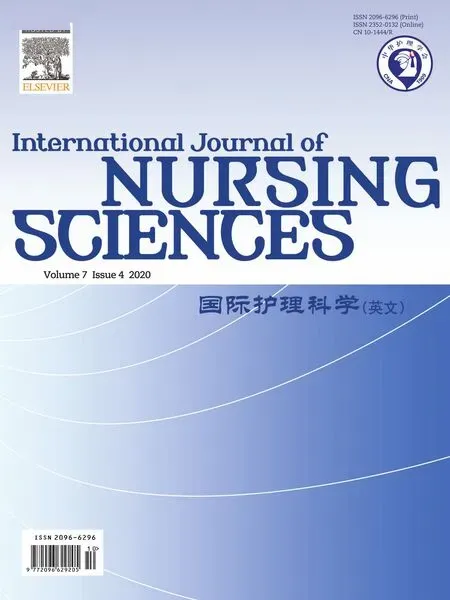Protection of research participants
All investigators should ensure that the planning conduct and reporting of human research are in accordance with the Helsinki Declaration as revised in 2013.All authors should seek approval to conduct research from an independent local,regional or national review body (e.g.,ethics committee,institutional review board).If doubt exists whether the research was conducted in accordance with the Helsinki Declaration,the authors must explain the rationale for their approach and demonstrate that the local,regional or national review body explicitly approved the doubtful aspects of the study.Approval by a responsible review body does not preclude editors from forming their own judgment whether the conduct of the research was appropriate.
Patients have a right to privacy that should not be violated without informed consent.Identifying information,including names,initials,or hospital numbers,should not be published in written descriptions,photographs,or pedigrees unless the information is essential for scientific purposes and the patient(or parent or guardian) gives written informed consent for publication.Informed consent for this purpose requires that an identifiable patient be shown the manuscript to be published.Authors should disclose to these patients whether any potential identifiable material might be available via the Internet as well as in print after publication.Patient consent should be written and archived with the journal,the authors,or both,as dictated by local regulations or laws.Applicable laws vary from locale to locale,and journals should establish their own policies with legal guidance.Since a journal that archives the consent will be aware of patient identity,some journals may decide that patient confidentiality is better guarded by having the author archive the consent and instead providing the journal with a written statement that attests that they have received and archived written patient consent.
Nonessential identifying details should be omitted.Informed consent should be obtained if there is any doubt that anonymity can be maintained.For example,masking the eye region in photographs of patients is inadequate protection of anonymity.If identifying characteristics are de-identified,authors should provide assurance,and editors should so note,that such changes do not distort scientific meaning.
The requirement for informed consent should be included in the journal’s instructions for authors.When informed consent has been obtained,it should be indicated in the published article.
所有研究人员应当确保人体研究的实施计划和报告符合2013 年修订的《赫尔辛基宣言》(www.wma.net/policies-post/wma-declaration-of-helsinkiethical-principles-for-medical-researchinvolving-human-subjects/)的要求。所有作者都应当从独立的地方、区域或国家审查机构(例如,伦理委员会、机构审查委员会)寻求批准。如果研究的实施是否符合《赫尔辛基宣言》的要求受到质疑,则作者必须解释采用其研究方法的理由,并证明地方、区域或国家审查机构已明确批准了受到质疑的那部分研究。审查机构的批准并不排除编辑对研究的实施是否恰当作出他们自己的判断。
患者有隐私权,不应在没有获得知情同意的情况下受到侵犯。可辨认身份的信息,包括姓名和其首字母缩写,或住院号,都不应在书面描述、照片或遗传谱系中公开,除非出于科学的目的该信息必不可少,并且患者(或其父母或监护人)签有知情同意书,同意发表。出于此目的签署知情同意书时,要求将准备发表的稿件让可能被识别出来的患者过目。作者应该向这些患者公开,论文发表后是否还有其他可能使患者被认出来的材料会出现在互联网上或印刷品中。患者的同意必须是书面的,并要依照当地的法律或规定,或由期刊存档,或由作者存档,或双方都存档。适用的法律各地不同,期刊应依法制定自己的规定。由于存档知情同意书的期刊将会知晓患者的身份,有些期刊认为知情同意书由作者存档会使患者的隐私得到更好的保护,作者只需向期刊提供一份书面声明,证实他们收到并存档了患者的书面知情同意。
应省略非必要的能识别患者身份的细节。只要有任何疑问不能做到匿名,就应该获得知情同意。例如,遮蔽患者照片中的眼区是不足以保护患者不被认出的。如果对身份识别特征作了“去识别”处理,则作者应该作出保证且编辑也应注明,这种更改不会歪曲科学意义。
期刊的作者须知中应该包括对知情同意的要求。如果已取得知情同意,在发表的论文中应有说明。
 International Journal of Nursing Sciences2020年4期
International Journal of Nursing Sciences2020年4期
- International Journal of Nursing Sciences的其它文章
- Duplicate publication
- Acceptable secondary publication
- 2020 Year of the Nurse and Midwife
- Manuscripts based on the same database
